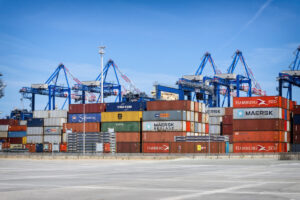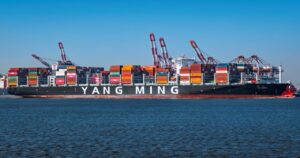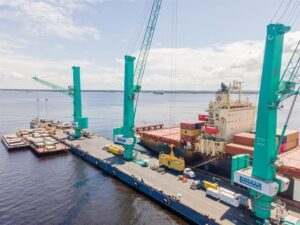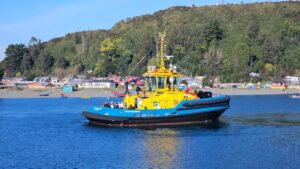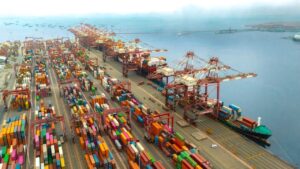The Associated British Ports (ABP) has signed an agreement with Edinburgh–based oil and gas company Harbour Energy to develop a CO2 import terminal at the Port of Immingham.
According to ABP’s recent release, the terminal will provide a large-scale facility to connect CO2 emissions from industrial businesses around the UK to Viking CCS’s high-capacity CO2 storage sites in the Southern North Sea.
Viking CCS development concept plans to transport CO2 along a newly constructed pipeline from Immingham to Theddlethorpe.
The project will reuse the existing 120-kilometre LOGGS pipeline to transport the CO2 offshore to the Viking Fields.
READ: Port of Gothenburg debuts hydrogen charging and filling station
ABP will join West Burton Energy, Phillips 66 and VPI as partners to the Viking CCS network – which is targeting first CO2 capture as early as 2027 and a reduction of 10 million tonnes of UK emissions per annum by 2030.
BP’s investment plans for new infrastructure at the port include a jetty to service the import and export handling of liquid bulk products.
In addition to handling green ammonia, the jetty is being designed to import liquified CO2 cargoes and will connect to the Viking CCS transport and storage sites.
“We are delighted to welcome ABP as a partner to the Viking CCS network through their investment in the Port of Immingham,” said Steve Cox, EVP HSES and Global Services of Harbour Energy.
“ABP’s dual-purpose jetty will support the reduction in the UK’s emissions and, critically, amplifies the Viking CCS network’s potential to provide a viable solution for stranded CO2 emissions from companies across the UK.”
Henrik L. Pedersen, ABP’s Chief Executive Officer, said that the project represents a critical step in strengthening the Port of Immingham’s position within the UK’s decarbonisation agenda.
“Our ports on the Humber already play a vital role in supporting the UK’s energy transition, with involvement in a wide range of renewable energy projects such as offshore wind at Green Port Hull and the development of large-scale green hydrogen production in Immingham,” he said.
Construction of the jetty is expected to begin in late 2024 and the terminal is expected to be operational and ready to receive first cargoes of CO2 imports from 2027.



